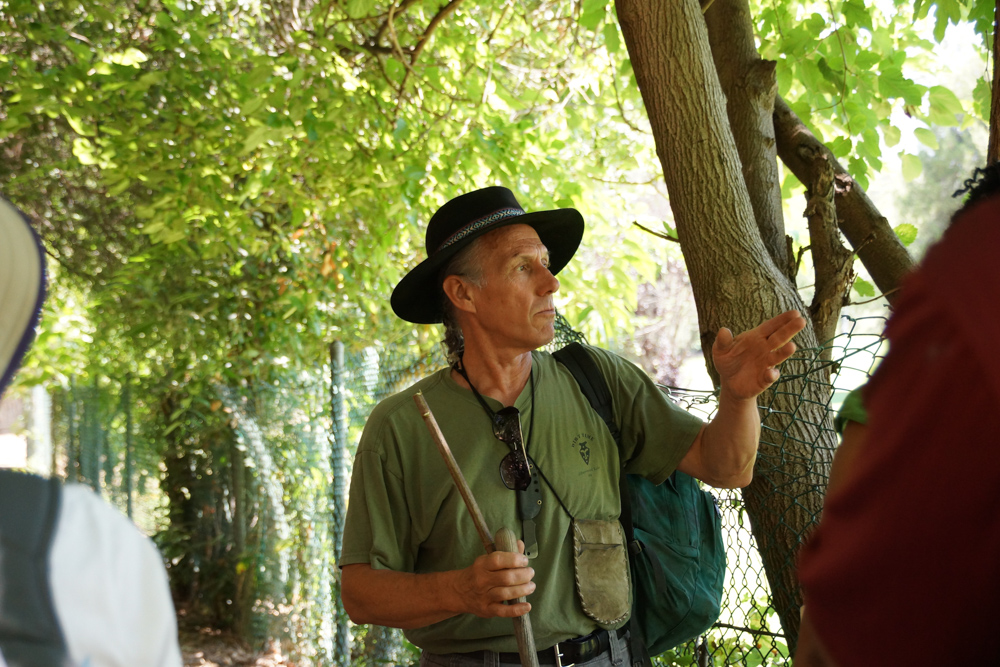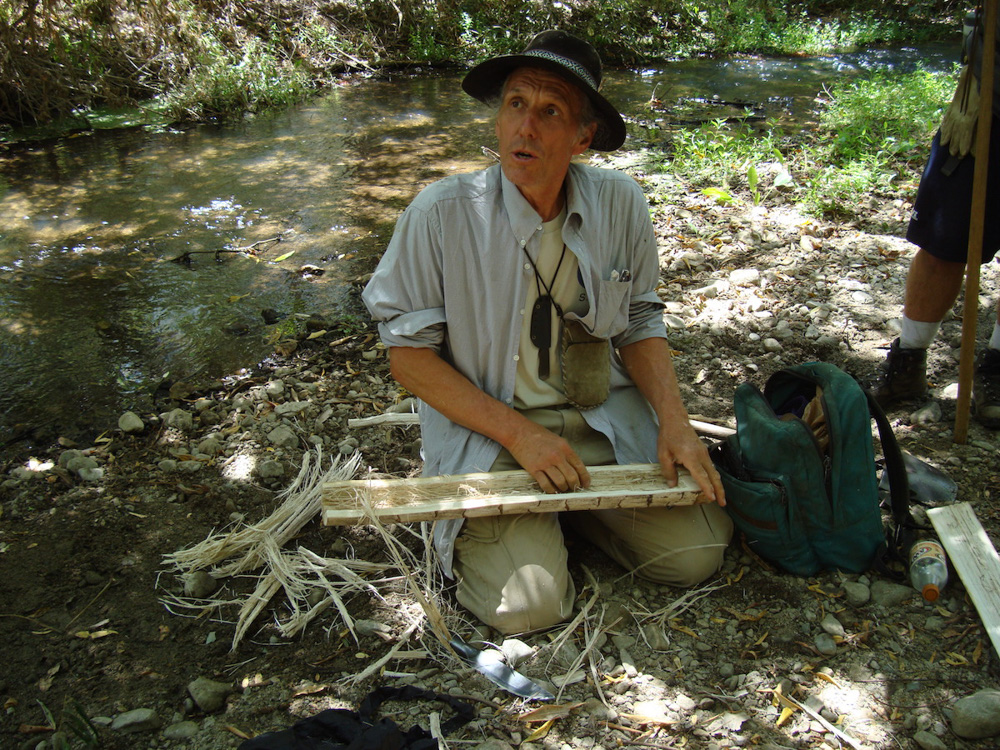How to Forage for Your Dinner
Wild Plants Expert Christopher Nyerges Leads Ventura River Workshop

Blame whatever reason you’d like — the first human farmer probably bears more blame than fast food — but very few of us would last all that long if we had to live off of merely what the wilderness provides. Christopher Nyerges is working to change that.
An ethnobotanist, survivalist, and forager who’s studied the ways native peoples lived from what the earth provided, Nyerges has led more than 40,000 students in wilderness classes since 1974, written such books as How to Survive Anywhere, Guide to Wild Foods and Useful Plants, and Foraging California, and appeared many times on TV alongside Huell Howser and the Doomsday Preppers.
On March 9, he joins Lanny Kaufer for a foraging field trip along the Ventura River Preserve — hoping to find such plants as chickweed, miner’s lettuce, and possibly edible mushrooms — followed by a workshop at Euterpe Farms, where he’ll teach how to make cordage from yucca and build a primitive fire. He answered a few of my questions recently.
Is late winter a good time for foraging? This depends on what you’re foraging for. Winter to spring is the time for the greens, for soup, salad, and tea. Then fruits start in spring and mostly in the summer. Elder and currants mature in spring; in summer and fall, you get the cherries, manzanitas, and acorns.
What are some of the dangers to this practice? I always suggest that people just taste the foods that I serve. This is simply because their body may react to a new food, in the way that you might have a reaction to, say, a Thai meal that you’ve never had before. Beyond that, when you collect on your own, only eat what you absolutely have identified. Do not be overconfident. If in doubt, do without.
Are there ecological dangers to the rise of foraging? The greatest ecological dangers are from rapid development in the urban areas — foragers are not even a drop in the bucket. And farming’s impacts are vast, yet we regard that as a necessary impact. Most foragers I know are primarily picking European weeds, which are common and not desirable to homeowners or farmers, and there is usually no problem picking all these you want. Home repair shops typically sell loads of poisons so “gardeners” can spray these edible weeds to kill them. The sprayers of Roundup are the problem, not foragers.
However, some people do over-pick wild mushrooms. And I suggest people do not buy “sage bundles” for smudging because the sage collectors nearly always over-collect, and they are also selling a fraud — not a real Native American practice at all, at least not in the way they are pushing it.

What are some of these European greens? If you go to any home improvement store and go to the aisle that sells herbicides, you can often see the Ortho chart with all the plants whose sin is that they grow on your lawn or in your garden. Mostly from Europe, usually called weeds, these include lamb’s quarter, chickweed, mallow, sow thistle, dandelion, curly dock, mustards, plantain, and so many others. These are all excellent foods.
Do these greens need any special preparations or can they be eaten straight away? Just like any other plants from the garden, the preparation depends on the individual plant. Some greens can be rinsed and tossed into salads. Others must have some parts removed, and some cooking/processing, as with cactus pads.
Have you been surprised to see foraging embraced by fancy restaurants? No, not at all. The foodies are always looking for a taste delight, and wild foods is the latest thing. Some of the foodies become environmentalists, but most are just there for the current taste thrill and next year might be onto the next thing. It’s still a good thing, as far as it goes.
What is your desert-island edible plant? Though I’ve never been to a desert island, from my research, I suspect I’d be eating coconuts and bananas.
4•1•1
Join Christopher Nyerges and Lanny Kaufer for a foraging field trip and workshop on Saturday, March 9. See schoolofself-reliance.com for more info, and visit herbwalks.com or call (805) 646-6281 for the $75 tickets.



